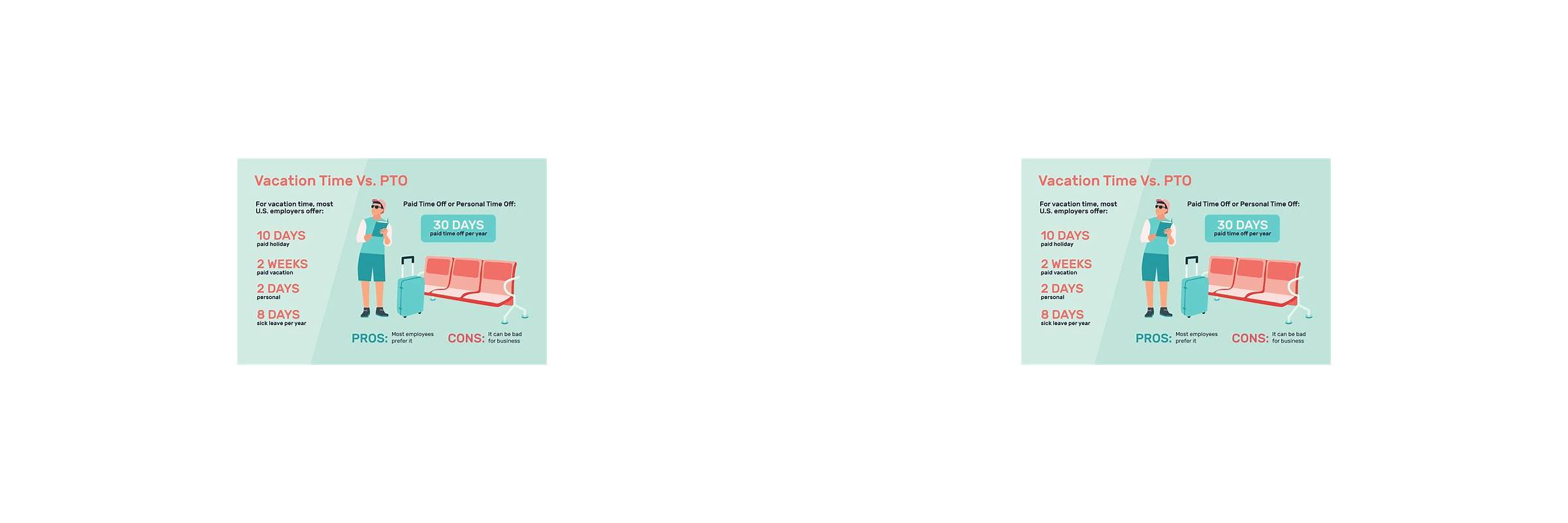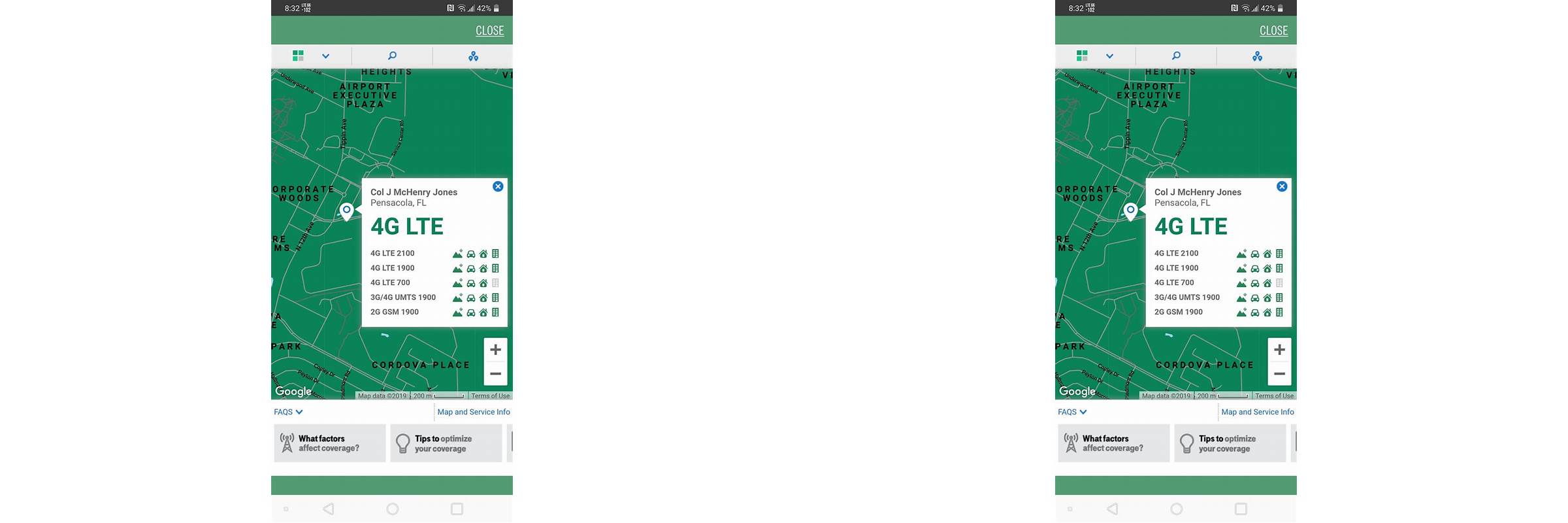The Importance of Taking Vacation Time
Taking a vacation is essential for several reasons. First, it helps you avoid burnout, which may result from working continuously without taking a break. It also recharges your batteries and enables you to come back to work feeling reinvigorated and ready to tackle challenges with a renewed perspective. Additionally, taking vacation time improves your overall health and wellbeing by reducing stress, providing time for physical activity, and allowing you to focus on hobbies and interests outside of work.
Studies have shown that taking time off from work can have significant health benefits. One study found that men who didn’t take an annual vacation saw a 20 percent increase in their risk for death and a 30 percent increase in the risk of heart disease. Additionally, another study found that women who took vacation time less than once every six years were eight times more likely to develop coronary heart disease. This data points to the importance of taking time off work for your physical health.
Vacations do not have to be elaborate or expensive to be beneficial. They can range from a short three-day weekend getaway to an extended trip abroad. The critical thing is that you take time away from your day-to-day work activities, which usually include emails, phone calls, and multitasking. Clearing your mind and disengaging from your work responsibilities will help you come back feeling rested and renewed.
The benefits of taking vacation time are not just limited to physical health. Spending time away from work can improve your mental health as well. By setting aside time to focus solely on yourself, you can reduce stress and increase happiness. Use this time to focus on things that you love to do, like reading, writing, or exploring new places. You will come back to work feeling less stressed and better equipped to handle any challenges that come your way.
In conclusion, taking a vacation can have significant benefits for your health and wellbeing. From reducing stress to increasing happiness, vacation time is necessary for overall physical and mental health. So if you have not taken a vacation in a while, it’s time to start planning. Whether it’s a weekend getaway or an extended trip abroad, make sure you prioritize taking time for yourself. You deserve it, and your mind and body will thank you for it in the long run!
How Taking Time Off Can Boost Employee Productivity
When it comes to work, it’s easy to fall into a cycle of long hours and little time off. This can not only be detrimental to personal health but also to job performance. Employees need time away from work to recharge, de-stress, and focus on their personal lives. But what many people don’t realize is that taking time off can actually boost employee productivity.
One reason that time off can increase productivity is that it allows employees to rest and return to their work refreshed. Research shows that when workers have a chance to relax and recharge, they come back to their jobs with renewed energy and focus. This means they can work more effectively and efficiently than if they had been working non-stop without taking breaks.
Another benefit of taking time off is that it can give employees a new perspective on their work. When someone is deeply involved in their job day in and day out, it’s easy to become narrowly focused on specific tasks or problems. Taking a break can help employees step back and look at their work from a different angle. They may be able to spot new solutions or ways of doing things that they hadn’t considered before.
Additionally, taking time off can benefit overall employee wellness. Constant stress and heavy workloads are major contributors to burnout, a state of emotional, mental, and physical exhaustion that can make it difficult to continue working effectively. Taking a vacation or even a long weekend can provide the time and space needed to relax and recharge, reducing stress levels and increasing overall feelings of wellbeing.
Finally, allowing employees to take time off shows that a company values and trusts their workers. When employees feel that their job is respected and that their employer values their personal lives, they are more likely to feel motivated and engaged in their work. This can result in increased job satisfaction, which in turn can lead to higher productivity and a better work environment for all.
In conclusion, taking time off from work can have many benefits for both employees and employers. From increased productivity and new perspectives to better overall wellbeing, the advantages of taking a break cannot be overstated. Companies that prioritize employee wellbeing and make time off a priority can reap the rewards of a happier and more effective workforce.
Financial Benefits of Unused Vacation Days
Many people view their vacation time as a luxury and tend to believe that they do not need it. However, it is essential to remember that taking time off from work can have long-term benefits for your mental and physical health, as well as your job performance.
Instead of letting your vacation days go to waste, consider the financial benefits of those days that you can save or leverage. When you do not use all of your authorized vacation days, most companies allow you to either carry them over to the next year or pay you for the days that you did not take. Either one of these options can have a significant impact on your finances.
First, let’s look at carrying over your unused vacation days. By carrying over your vacation days, you are essentially increasing the amount of paid time off that you have for next year. This can be especially beneficial if you have a significant event like a child’s wedding, a graduation, or a family reunion that requires time off. Instead of not getting paid for the extra days that you take off, you can use some of your carried-over vacation days to ensure that you still receive your regular salary.
Second, consider the option of getting paid for your unused vacation days. Depending on your company’s policies, you may be able to receive a lump sum payment for the total number of days that you did not take. This is especially useful if you are need of extra cash for a significant purchase such as a car or a down payment on a house. Alternatively, you can choose to invest that money in your retirement or save it for a future emergency.
If you choose to use your unused vacation days, you can also benefit financially. By taking regular vacations, you are reducing your stress levels, which can ultimately lead to better performance in your job. When you perform better on the job, you are more likely to receive a raise or a promotion, which will increase your income. Additionally, regular vacation can lead to better health, which means that you will be less likely to miss work due to illness or injury.
Unused vacation days can also lead to a positive impact on your mental health. According to studies, people who take regular vacations have lower levels of depression, anxiety, and other mental health problems. Additionally, vacations can help boost creativity and allow you to recharge, leading to better productivity once you return to work. By taking regular vacations, you are investing in your mental health and emotional well-being, which can ultimately lead to better performance on the job, faster career growth, and a higher salary.
In conclusion, it is important to recognize the financial benefits of unused vacation days. By taking advantage of carrying over or getting paid for your unused days, you are effectively increasing your paid time off or receiving a lump sum that you can use for a significant investment or emergency. Additionally, by taking regular vacations, you can improve your mental and physical health, leading to better performance on the job, higher income, and faster career growth.
Balancing Work and Personal Life with Vacation Time
Who doesn’t love a vacation? But have you ever felt guilty about taking time off work to relax? Or that you don’t have enough time to do what you want because work takes up too much of your life? Balancing work and personal life with vacation time can be a challenge, but it’s essential for a healthy lifestyle.
1. The Importance of Vacation Time
Vacation time is essential for everyone. While many workers may think that taking time off is a sign of weakness or that they will miss out on something important at work, the opposite is true. Taking time off can help reduce stress, improve productivity, and prevent burnout. An overworked body and mind can lead to anxiety, depression, and other health problems. A well-rested employee, on the other hand, is more productive, efficient, and motivated at work.
2. Planning Ahead
The key to balancing work and personal life with vacation time is careful planning. Start by looking at your work schedule and identifying the best time to take off. Schedule your vacation time in advance to ensure that you have the necessary approvals from your employer. Once you’ve chosen your vacation date, use a planner or an app to organize your schedule so you can plan your time off work.
3. Communication is Key
Another essential aspect of balancing work and personal life with vacation time is communication. Speak with your employer and co-workers about your vacation plans, including how and when to contact you if necessary. Make sure that you delegate your responsibilities to someone trustworthy who can cover for you while you are away.
4. Making the Most of Your Vacation Time
Once you’ve planned your vacation and taken time off work, it’s essential to make the most of your vacation time. Here are a few tips to keep in mind:
a. Disconnect from Work: Don’t take work with you on vacation. Resist the urge to check emails or take phone calls from the office. If you must check in, set aside a specific time each day to do so and communicate that schedule. This way, you can stay in touch with work without sacrificing your relaxation time.
b. Try New Things: Use your vacation to explore new places, try new foods, and experience new cultures. Don’t be afraid to step outside your comfort zone and try something that you wouldn’t typically do. Taking this approach can lead to exciting discoveries and memories that will last a lifetime.
c. Relax and Recharge: The most important thing to do on vacation is to relax and recharge. Take naps, enjoy quiet mornings, read a book, or take a long walk. Do whatever makes you feel relaxed and rejuvenated. Taking this time for yourself will help you return to work refreshed and energized.
d. Spend Time with Loved Ones: Lastly, on vacation, it’s essential to spend time with loved ones. Whether it’s your family, friends or significant other, use this time to connect and strengthen your relationships. Leave the distractions of work and technology behind and focus on creating memories with those you care about most.
Remember that taking time off work doesn’t mean you are weak or unreliable. In fact, it’s the opposite. By taking the time to rest and recharge, you’re showing your employer that you are committed to your job and your well-being.
Conclusion:
Now that you know the importance of vacation time, planning ahead, communicating with your employer and co-workers, and making the most of your vacation time, it’s time to start planning your next getaway. Remember, taking time off work is essential for a well-balanced, healthy lifestyle.
Tips for Employers to Encourage Vacation Time Usage

Many employers fail to recognize the importance of vacation time for their employees. They believe that giving their employees time off will only result in a loss of productivity and profits. However, the opposite is actually true. Research shows that taking vacation time is crucial to employee engagement, productivity, and overall job satisfaction. In fact, employees who take time off are more likely to be engaged and productive when they return to work.
As an employer, it is important to encourage your employees to take vacation time. Here are five tips to help you do just that:
1. Lead by example:

The first and most important way to encourage vacation time usage is to lead by example. If you, as the employer, do not take vacation time yourself, then your employees are less likely to do so. Make sure that you take time off and set a good example for your staff.
2. Educate your employees:

Make sure that your employees understand the benefits of taking vacation time. Educate them on the positive impacts that taking time off can have on their mental and physical health, as well as on their overall job performance. You can do this through presentations, workshops, or simply by having an open discussion about the importance of vacation time.
3. Offer incentives:

Offering incentives can be a great way to encourage your employees to take vacation time. For example, you could offer bonus pay or additional vacation days for employees who take a certain amount of time off each year. By offering incentives, you are showing your employees that you value their time off and that it is an important part of the company culture.
4. Make sure there is coverage:

Make sure that there is adequate coverage for your employees when they take time off. If your employees feel that their workload will not be manageable while they are away, they will be less likely to take vacation time. Hiring temporary staff or redistributing tasks can help ensure that there is coverage while your employees are away.
5. Create a positive workplace culture:

Finally, create a positive workplace culture that values vacation time. Encourage employees to share their vacation plans and celebrate their time off when they return. You can also create a vacation policy that supports work-life balance and encourages employees to take time off. By creating a positive workplace culture, you are showing your employees that you value their well-being and are invested in their success.
In conclusion, vacation time is essential for employee engagement, productivity, and overall job satisfaction. As an employer, it is important to encourage your employees to take time off. Leading by example, educating your employees, offering incentives, making sure there is coverage, and creating a positive workplace culture are all great ways to do just that.

